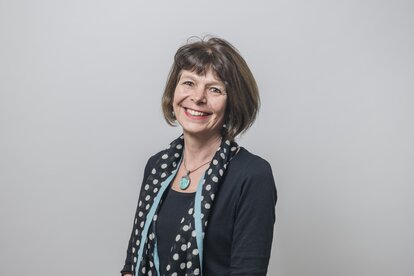"This event supported the breaking of social beliefs of menstruation that it is supposed to be invisible, silent and that girls and women are untouchable during menstruating days,” says Lalita Regmi, teacher, Dhuleshwor Higher Secondary School, Dullu Dailekh.
The celebrations earlier this month around international women’s day provided an opportunity for one of our projects in Nepal to highlight an issue that is not commonly talked about in public: the difficulties faced by women and girls during menstruation. As in many other countries, menstruation is traditionally associated with a time of “impurity” – something that is shaming and somehow degrading to women. Whether it would be viewed in the same way if men had periods was the subject of a humorous piece of research by Water Aid last year; the conclusion was that periods would be a matter to boast about, not to hide.
In Nepal, menstruation is literally spoken of as “the untouchable time” – when in many communities, a woman is supposed to sleep outside the home (often in very unhygienic conditions), and is barred from cooking the family meal, collecting water, or enterin temples.
The Water Resources Management Programme adopts an integrated approach to water resource management, including support for “blue schools” – schools that place a particular, practical focus on aspects of water, sanitation, hygiene and general environmental awareness. This year, project staff chose to highlight menstruation as the topic for discussion on international women’s day, organising a gathering of teachers, students and parents from five secondary schools in Dailekh, and inviting local health professionals as resource persons. The event was held at Biyaya Higher Secondary School in Dullu Dailekh, and has been reported to me by Planning, Monitoring and Information Officer Rubika Shrestha and Team Leader Madan Bhatta.
After a round of opening speeches by teachers and project staff, a public speaking competition on the topic of menstruation was held between girl pupils (no boys were invited to give their thoughts – possibly this would have been too embarrassing for them). This was followed by a question and answer session with health professionals from Dullu. hospital – giving students, parents and teachers the opportunity to raise concerns and share experiences. Songs celebrating womanhood also enlivened the proceedings.
Laxmi Bhandari, class 9 student class of Saraswati Higher Secondary School, gave Rubika this frank comment: “Due to a lack of proper menstruation hygiene – of suitable materials to absorb menstrual blood, a private place to change, and soap and water for washing –girls are often facing problems. Sometimes they are not attending school and miss many important lessons. Following the launch of the blue school project in my school, we gained knowledge about the menstrual cycle…. More importantly, we got facilities of water and soap in our toilet, and even the supply of sanitary pads in our school. That makes things easier for us“.
Bhawana Rija, class 9 student class of Biyaya Higher Secondary School, is shown speaking in the photograph above. According to her, “The blue school programme provided us with the platform to gain and share information and knowledge on how to manage menstruation with dignity and without fear or discomfort. It supported us in minimizing the shame of speaking about menstruation.”
Ser Bahadur Thapa a teacher at Laxmi’s school, added that “Both the school and the students look cleaner than before, and the girl students are attending school more regularly“. He also pointed out that in addition to the improved toilet facilities, a kitchen garden demonstrating the efficient and productive use of water had been established within the school grounds. The pupils are thus learning vegetable cultivation techniques, and are encouraged to establish such kitchen gardens at home.
Rubika reports that although the women’s day event marked the first time that most of those present had ever discussed menstruation in such a public way, it may well not be the last. Afterwards she received suggestions to organize something similar on a larger scale. She notes, “The day was successful in creating awareness of a number of misconceptions and practices which can result in adverse health outcomes amongst adolescents and women if not corrected.”
Lying in the mid-West of Nepal, Dailekh was not heavily affected by the devastating earthquakes of last year, although it was impacted by the more recent political blockades of the Indian border that rendered even basic commodities in very short supply. Finally, these blockades are over and supplies are again moving – as is the post-earthquake reconstruction effort in central Nepal. In this reconstruction work, Helvetas is working in close collaboration with Caritas and Solidar Swiss.


